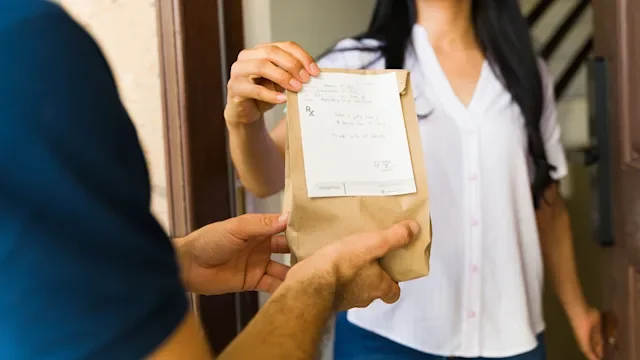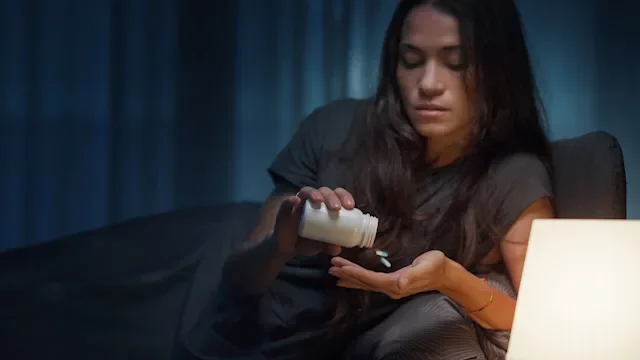Key takeaways:
A drug repository program is a pharmacy organization that collects and donates unused medications to people who need them. They help control drug waste and improve medication access.
Drug repository programs are only available in certain areas. As of late 2021, 28 U.S. states and regions have active programs.
If you want to receive medications from a drug repository program, contact them directly. Each program has different eligibility requirements, so they can tell you if you qualify for their services.
Nobody likes it when things go to waste. No matter if it’s from a bit of leftover food, a poor investment, or even a missed opportunity, it’s natural to feel disappointed when something slips out of your grasp.
In the world of pharmacy, drug waste causes this feeling. When a medication goes unused that could have been used otherwise, many people are negatively affected. The wallets and energy of hospitals, pharmacies, and people who take medications can take a hit when ready-to-go medications end up finding their way to the garbage.
To help solve this problem, drug repository programs are popping up in numbers. These specialized programs aim to reduce drug waste by reallocating safe and unused medications to those who need them. But what are these programs exactly, and how do they work?
Search and compare options
Here, we’ll talk about drug repository programs — what they are, where they’re available, and why they’re relevant to you.
How much unused medication is wasted annually in the U.S.?
From a financial standpoint, various data are available that estimate how much U.S. healthcare organizations lose to drug waste every year. For instance:
In 2019, it’s estimated that Medicare Part B spent more than $752 million on medications that went unused.
Between 2017 and 2019, another estimate shows that over $2 billion worth of medications were thrown away. This is according to Centers for Medicare and Medicaid Services (CMS) data.
In 2016, data suggested that almost $3 billion worth of cancer medications is wasted every year. This waste mostly comes from using medication vials that are too big.
In 2014, it was estimated that long-term care facilities (places like nursing homes and assisted living facilities) lose about $2 billion annually on wasted, unexpired medications.
This financial impact goes beyond just healthcare organizations. If you have ever purchased a medication that you didn’t end up using, that’s also considered drug waste. But it’s harder to predict the specific amount of drug waste that occurs among people who use medications.
More importantly, drug waste also has health effects. Throwing away unused medications is a lost opportunity for many people who have a hard time affording or accessing medications. Being able to reuse and recycle these medications can help many people — possibly you or a loved one. More on this next.
What is a drug repository program?
A drug repository program — also called a drug donation program — is like a medication recycling pharmacy. If a medication goes unused, a drug repository program can collect it and donate it to someone who needs it. Some programs are private organizations. Others are connected to a local government.
But drug repository programs are only available in certain areas. Your state might have one if laws have been passed that say they’re OK. There are also various rules in place that decide what types of medications can be donated and reused in each state.
For example, Oklahoma has had a drug repository program since 2004. The Oklahoma program is able to recycle unused medications from nursing homes that aren’t controlled substances. Between late 2004 and early 2022, this program filled close to 270,000 prescriptions. These prescriptions recovered about $28 million worth of medications that would have been wasted.
We’ll talk more about state programs later.
Is a drug repository program different from a drug disposal program?
Yes. They do different things.
Drug disposal programs offer a safe way for you to get rid of medications that have expired or you no longer need. These medications are ultimately destroyed or thrown away — they’re not donated or given to another person.
If you’re looking to throw medications away and are looking for a safe place to do so, consider using a search tool from organizations like the National Association of Boards of Pharmacy, DisposeMyMeds, or the DEA.
What states currently have drug repository programs?
According to the National Conference of State Legislatures, as of late 2021, 28 states and regions have drug repository programs that are up and running. This includes:
Arizona
California
Colorado
Florida
Georgia
Illinois
Iowa
Kansas
Louisiana
Maryland
Michigan
Minnesota
Montana
Nebraska
Nevada
New Hampshire
North Carolina
North Dakota
Ohio
Oklahoma
Oregon
Pennsylvania
Tennessee
Virginia
Washington
Washington, D.C.
Wisconsin
Wyoming
Several other states and regions have also passed laws that make drug repository programs legal. Because these laws have been passed, we’ll likely see more operational programs in the future. But at this time, they’re not ready to go. Examples are in places like Connecticut, Indiana, and New York.
Challenges of implementing drug repository programs
Compared to many areas of the healthcare field, pharmacy has a lot of regulations. The right laws have to be in place for a drug repository program to exist.
But once the legal hurdles are taken care of, it takes more legwork to get a program off the ground. Common challenges of starting and running a drug repository program are similar to those of starting a business:
Finding and keeping staff to run a program
Finding adequate funding to keep a program afloat
Making sure that medications are continually available to dispense
Diligently inspecting donated medications over time to make sure each one is safe to use
Making sure people — both users and donors — are aware that a program exists
Finding enough storage to keep all medications and supplies
Minimizing liability concerns
However, as drug repository programs continue to grow and expand in the U.S., they’re becoming easier to implement. Plus, some organizations — like SIRUM — can help improve certain steps of the drug donation process.
How can you donate unused medication to a drug repository?
It depends on the state that you live in. Many states don’t allow individual people to donate unused medications. Most just allow healthcare organizations or healthcare professionals to donate unused medications.
But regardless of the source, state drug repository programs have specific requirements about which medications are OK to donate. For example, only a certain number of drug repositories are able to accept cancer medications.
More generally, the following medication types aren’t accepted:
Controlled substances, such as opioids or benzodiazepines
Expired medications
Opened medications
Medications that have been tampered with
Empty bottles
If you have a medication that’s unexpired and unopened that you want to donate, try contacting your state’s Board of Pharmacy. They can tell you if a drug repository exists in your state that accepts donations from individual people. Your local pharmacist may also be able to tell you this information. But if you already know that a drug repository exists in your area, it’s better to contact them directly.
One example of a state that accepts individual donations is Iowa. They accept medications from people that are still sealed in tamper-evident containers and have several months left before expiring. Other examples include states like Georgia, Maryland, and Wyoming.
How can you receive cheaper prescriptions from a drug repository?
If you’re interested in getting medications from a drug repository program, there are generally a few requirements. Again, they vary by state, but these are the common prerequisites:
It’s too expensive for you to get your medication from another pharmacy
You have a valid prescription for your medication
You’re a resident of your state
Your family’s income is below 200% of the federal poverty level
You’re either uninsured or underinsured
Regardless of whether you fall into these buckets, it’s good to check in with a program in your state (if applicable). They can help you decide if you’d be a good match for their program. They can also tell you how to use and access their services.
The bottom line
Drug repository programs recycle unused and unexpired medications. They help control drug waste and improve medication access for certain people who qualify. These programs are available in certain U.S. states and regions, and they’re becoming more common. But it’s important to keep in mind that each program has their own rule book. Only certain people can donate to, or use, their services, and only certain medications qualify.

Why trust our experts?


References
Adams, A. J., et al. (2021). Does increased state pharmacy regulatory burden lead to better public safety outcomes? Innovations in Pharmacy.
Assistant Secretary for Planning and Evaluation. (2022). HHS poverty guidelines for 2022. U.S. Department of Health and Human Services.
Association of Community Cancer Centers. (2020). Waste not, want not.
Bach, P. B., et al. (2016). Overspending driven by oversized single dose vials of cancer drugs. BMJ.
Briones, N. (2020). Current state of drug recycling programs in the United States. International Immersion Program Papers.
Dispose My Meds. (n.d.). Medication disposal locator.
Food and Drug Administration. (2020). Drug disposal: Drug take back locations.
Georgia Department of Public Health. (2021). Donated Drug Repository Program.
Lenzer, J. (2014). U.S. could recycle 10 million unused prescription drugs a year, report says. BMJ.
Maryland Board of Pharmacy. (n.d.) Drug repository forms. Maryland Department of Health.
Medicare Advantage. (2021). Medicare spent $2.1 billion on discarded drugs from 2017 to 2019.
National Association of Boards of Pharmacy. (n.d.). Boards of pharmacy.
National Association of Boards of Pharmacy. (n.d.). Drug disposal.
National Conference of State Legislatures. (2021). State prescription drug repository programs.
National Institute on Aging. (2017). Residential facilities, assisted living, and nursing homes.
SafeNetRx. (n.d.). Individual donation.
Sirum. (n.d.). Reimagining access for those in need.
The ASCO Post. (2020). Drug repository programs address high costs, access, and waste issues when appropriately implemented.
Tulsa County Medical Society. (2022). Drug recycling.
U.S. Drug Enforcement Administration. (n.d.). Controlled substance public disposal locations - Search utility.
Wyoming Department of Health. (n.d.). Wyoming medication donation program.














